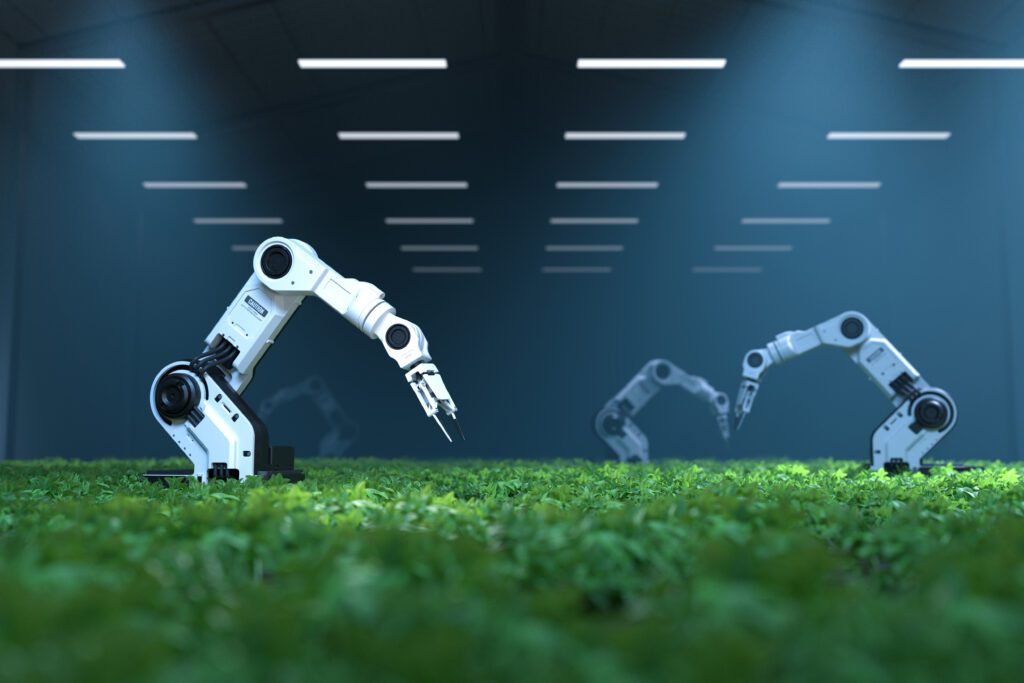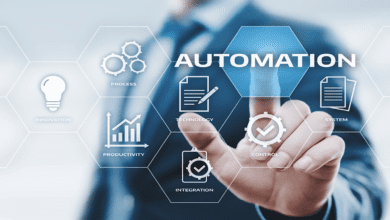
What is an automated business? Top 10 business ideas that are automated
What is an automated business? Top 10 business ideas that can be automated. In a world in which technology is evolving at a rapid rate it is no wonder that the term “automation” has taken the forefront in discussions of growth and efficiency in business.
But what exactly does really mean by “automation” the business of a company and what opportunities do it offer entrepreneurs and innovators of today? When we look into the world of automated companies it is important to realize that automation doesn’t just mean substituting human labour with machines. It’s an effective strategy for streamlining processes, increasing the quality of services, and providing an overall superior customer experience.
Automated companies aren’t only a futuristic idea, they are a reality today and, by gaining an understanding of the fundamentals behind them and philosophies, you can change your business practices. Let’s take a look at 10 creative automated business strategies that are not just practical, but are capable of transforming industries and responding to the ever-growing requirements of a modern market.
What is an automated business? Top 10 business ideas that are automated
Rethinking Automotive Care and Diagnostics
In a world that’s becoming more conscious of sustainability and efficiency It’s not a surprise that the automobile industry is at the forefront of the trend. Autonomous automotive diagnosis, pre-planned maintenance and even self-healing components are all possible.
The new technology begins with automobile diagnostic devices that incorporate machines learning programs that are able to determine the health of a car from only an engine’s sound, or from a diagnostic code. These tools will transmit reports automatically to the owner’s device, and initiate schedules for repairs prior to the onset of a problem.
Another signpost of automation in the automotive industry is creation of self-repairing technology which is where sensors in a car are able to detect the wear and tear and the materials that can repair tiny cracks or dents are brought into the picture. This is not just reducing the requirement for human intervention in repairs, but also helps prevent accidents caused by unexpected mechanical breakdowns.
Pioneering Automated Agricultural Solutions
Agriculture, which is the foundation to our diet is integrating automation to address the most pressing problems facing humanity including labor shortages and changes in the climate to search to implement sustainable practices.

Fully autonomous drones and robot harvesters are already being deployed for precision agriculture–monitoring crop health, administering targeted treatments, and even improving soil quality, all without human hands. These advances not only ensure the viability of crops but also reduce the negative impact of farming on the earth.
Vertical farming, which is a method which allows for the cultivation of crops in vertically stacked layers requires less space and water as well as soil than conventional methods. With a system of sensors and automated systems, each element of the vertical farming system–light and water, nutrients, and the climate are optimized to produce nutritious crops year-round.
Revolutionizing the Manufacturing Industry through Robotic Workforces
The manufacturing industry has experienced significant changes because of automation, and its evolution isn’t over yet. Businesses are currently looking into the possibility of using automated robotic processes (RPA) to go beyond the repetitive tasks typically that are associated with robots.
By utilizing sophisticated machine learning techniques and AI, robots have become capable of handling complicated non-linear tasks which were once a solely human-centric. They are able to gain knowledge from data, spot defects, and even work with human colleagues which results in unmatched efficiency and accuracy.
Automation in manufacturing is making it possible to offer mass customization. Through the integration of automation into the production line, companies can effectively and affordably adapt products to specific requirements of customers at the scale previously not possible.
The Retail Revolution: Automated Inventory Management
In the retail business keeping a slim but adaptable inventory is vital to the success of a business. The automated inventory control systems revolutionizing the game and ensuring that businesses have the appropriate products available at the right moment without the burden of having overstocked stocks.
Advanced software solutions are now utilizing the historical data from sales, live analysis and even forecasts for weather to determine which products are likely to be the most popular in near future. The systems automatically update inventory levels and place orders for products when stocks run low, seamlessly connecting with the logistics and supply chain partners.
In the store, robots that are equipped with scanners take inventory management to a whole new level. They can move through the aisles by scanning barcodes for lost items or shortages, and then alert staff to correct the situation. Some even replenish shelves, freeing staff members to focus on more productive tasks.
Personalized Digital Marketing Through AI
The world of digital marketing is becoming more overcrowded and competitive. For a way to differentiate themselves, companies are using automation to provide high-quality, timely and relevant information to their customers.

AI-powered marketing platforms analyse vast quantities of data from customers to uncover patterns and information that help inform highly targeted marketing campaigns. They also can determine the most effective timings and channels for delivering contents, and experiment with and modify strategies in real-time, ensuring maximum efficiency.
Chatbots, which are a type of AI are also changing the way customers interact. They can answer routine questions as well as provide recommendations on products or even full sales with no human interaction. This is not only better customer service, but allows agents to focus on more complicated customer requirements.
Cutting-Edge Healthcare Through Automated Diagnostics
The healthcare sector is an ideal area for automation, and has the potential to simplify processes, decrease medical errors and improve the quality of care for patients. Diagnostic tools that are automated can handle medical images, lab tests and other diagnostic data with speed and precision that exceeds the capabilities of humans.
Telemedicine platforms, which permit patients to speak with healthcare professionals via the internet extend the reach of healthcare services to less-served regions. They’re backed with automated systems for scheduling and solutions for managing patient records and prescription fulfillment procedures that make them an efficient and seamless alternative to traditional models of care.
The field of robotic surgery also has revolutionized the medical field and taken it with a vengeance, allowing surgeons to operate with incredible accuracy. In conjunction using machine-learning and virtual reality, the systems are able to offer real-time guidance and analysis, thereby increasing their efficacy and safety.
The Rise of Smart Logistics and Delivery Systems
Logistics is under an unprecedented amount of pressure to meet the ever-growing customer demands for speedier and more secure delivery. Automation is the crucial element to unlocking the full potential of the next generation of innovative delivery and logistics systems.
Autonomous vehicles and drones reduce time to delivery and cost and offer a green alternative to conventional methods. Furthermore, warehouses with smart technology equipped with robots and AI can handle and complete orders at a rapid pace and with little human supervision.
To make delivery more enjoyable companies are investing in last-mile delivery services like locker systems, as well as automatized delivery trucks. These tools allow customers flexibility and minimize the chance of missing deliveries, thereby improving customer service.
Operations Streamlining Through Automated Quality Management
Quality management is the cornerstone of success for many companies and automation is becoming an essential all-rounder. Quality control systems that are automated can identify defects, test tolerances, and guarantee conformance to industry standards with a degree of accuracy that is beyond the capabilities of a human.

The systems are integrated with production lines in order to monitor and report on the quality of products in real-time, allowing businesses to tackle issues when they arise, rather than later. They also aid in the analysis of root causes and provide insight into the fundamental issues that cause issues with quality, and in implementing continuous improvement efforts.
In customer service, the sentiment analysis tools are used to analyze customer feedback and pinpoint areas of improvement. This proactive approach allows businesses to resolve issues quickly and ensure high levels satisfaction with customers.
Streamlining Financial Services with Automation
The industry of financial services relies in large part on analysis and compliance and customer service. All of these could be greatly improved by automation. Automated processes are being employed to perform the repetitive tasks of back-office, like accounting and data entry in a speedy and precise manner.
AI-driven investment platforms are able to analyze the market, oversee portfolios and even provide financial guidance to customers according to their own objectives and risk tolerance. They can also alter investment strategies in real-time and automate a large portion of the decision-making process typically reserved for financial advisors who are human.
Automatic fraud detection is a crucial area of improvement in the field of financial services. These systems employ machine learning to detect patterns and irregularities in financial data which could indicate fraudulent activity which helps protect businesses as well as consumers.
The Smart Home Revolution: Automating Daily Life
The concept of a smart home isn’t the something you read about in science fiction. It’s an industry in burgeoning growth that is set to revolutionize everyday living. Smart appliances can now be operated remotely, to security systems for homes that detect intruders and notify authorities Automation is making life more convenient and safer for the consumers.
Home automation devices benefit from your preferences and habits to create a customized home environment. For instance, lighting systems are able to adjust themselves to match their presence. Thermostats will keep your temperature at a certain level, and entertainment systems can suggest what that you’re likely enjoy.
The Internet of things (IoT) connects all of these devices, allowing them to collaborate to create a seamless experience. While the IoT ecosystem grows and expands, so can the possibilities for automation of the home that range from energy management to conserving water, to health surveillance, and more.
Conclusion: Moving into the Future of Automation with Innovative Technologies
In our exploration of the top 10 ideas for businesses that are automated One thing is for certain that automation can be used to transform industries dramatically and transform our lives and work. In the case of modern technology in the automobile industry or precise farming techniques in the agricultural sector or the transformational service that healthcare providers provide the possibilities for automation of business is enormous and sweeping.
Startups and entrepreneurs looking to make a mark on the market adopting the benefits of automation in business offers an exciting chance to explore new frontiers and be a leader in the field of innovation. If you keep abreast of new developments in technology and gaining a better understanding of how automation can help your business and position you on the leading edge of the automation revolution in business.
The future isn’t tomorrow, it’s today. The companies that realize this and take the measures to automatize their operations are the ones who prosper in the ever-changing digital environment. Therefore, instead of just imagining the future, let’s actually build it, one automation development at a.
Frequently Asked Questions (FAQs)
What does automation and AI influence employment in a variety of sectors?
A: Although automation may be a factor in job loss in certain industries but it also opens up opportunities for new jobs that require more sophisticated human-centric capabilities. The focus shifts toward jobs that require innovative thinking, problem-solving or interpersonal capabilities that automated systems is unable to reproduce.
Q: Will the use of smart delivery and logistics solutions make the traditional methods of delivery obsolete?
A: Not necessarily. While smart logistics can provide cost-savings and efficiency however, they are likely to coexist alongside traditional methods of delivery in the near term. Different factors, including technological limitations, challenges to regulation and the preferences of customers can affect the rate that traditional methods are improved or substituted.
Q What are the security and quality issues with automatized financial service?
The security aspect is the primary concern; financial service firms invest heavily in advanced security measures and encryption. In terms of quality automated systems go through rigorous tests to verify the compliance of financial standards as well as to reduce the chance of omissions or errors.
Q What can consumers do to ensure the privacy of their family and friends an environment of smart homes?
A: Users should choose devices that have a proven history of security and constant updates. They should also adhere to security-conscious internet habits, utilize secure, unique passwords for the devices they use, as well as think about the possibility of a separate network designed specifically for IoT devices that is separate from their main network.
Q: What ways can businesses prepare themselves for automatization?
A: Businesses must begin by identifying time-consuming and repetitive tasks that could benefit from automation. They must also invest in employee training to make sure that they can be able to work with automated systems efficiently and think about forming working with tech companies in order to stay on top of the latest technology.
Do automated business innovation solutions feasible for startups and small-sized businesses or are they available only to big corporations?
A: Automated business innovation are now accessible to companies that are of any size. A lot of solutions are scalable and service models permit small-sized enterprises to reap the benefits of automation without having to make huge upfront investments. Startups and small businesses are also more flexible in implementing and adopting new technologies.
Q What role will demand from consumers play in the advancement technology for automation?
A: The demands of the consumer is a major factor in the development and acceptance of automation technologies. As customers increasingly seek convenience along with personalization, speedy service, companies are forced to implement automated solutions that meet these demands while still remaining competitive and efficient.



